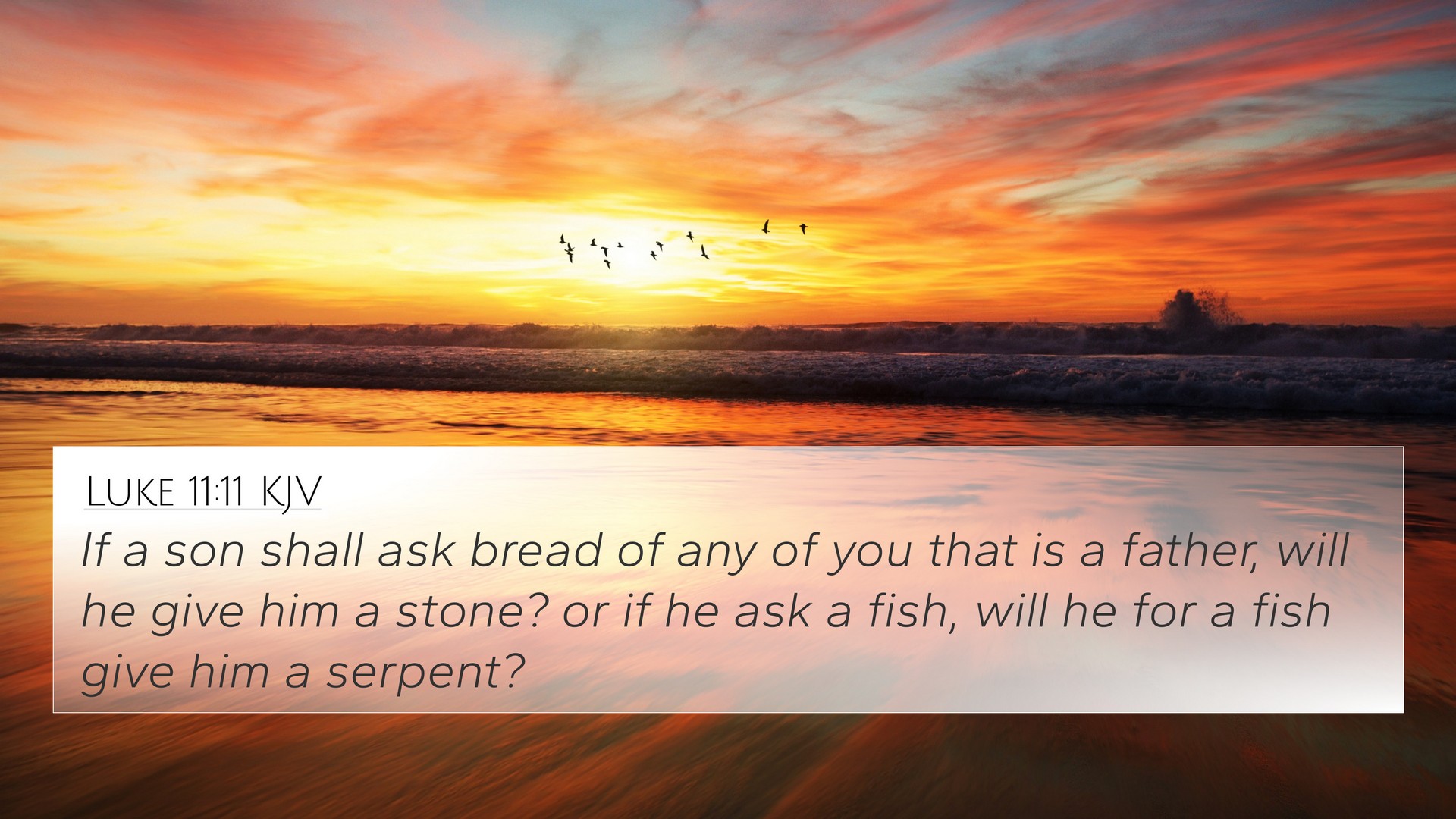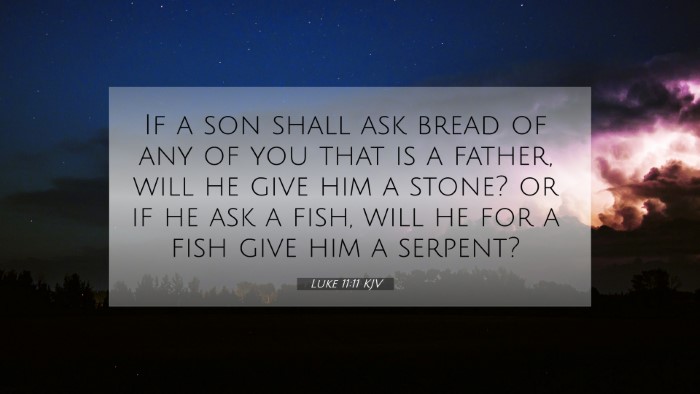Understanding Luke 11:11
Bible Verse: "If a son shall ask bread of any of you that is a father, will he give him a stone? or if he ask a fish, will he for a fish give him a serpent?" (Luke 11:11)
The verse addresses the nature of God's kindness and generosity in response to human requests, paralleling the earthly examples of parental care.
Commentary Insights
Matthew Henry's Commentary
Henry emphasizes the innate human tendency to provide for loved ones, especially children. He notes that just as a loving parent would not deceive their child, God, as the perfect Father, is expected to respond favorably to our needs. This signifies the assurance we can have in our prayers.
Albert Barnes' Notes
Barnes observes the rhetorical nature of the question posed by Jesus. He points out that the comparison between the gifts of a father and the expectations we should have from God illustrates the certainty of God’s beneficence. It underlines that God’s responses to our supplications will never be harmful or misleading, reinforcing our trust in divine providence.
Adam Clarke's Commentary
Clarke discusses the significance of Jesus using simple, relatable imagery to convey profound theological truths. He identifies that the terms 'bread' and 'fish' symbolize nourishment and spiritual sustenance. Clarke also underlines the implications of this verse for understanding prayer; believers should approach God with confidence, knowing that He desires to fulfill our genuine needs.
Cross-References Related to Luke 11:11
- Matthew 7:9-11: Similar theme of God giving good gifts in response to requests.
- James 1:17: Affirmation of God as the giver of perfect gifts.
- 1 John 5:14-15: Assurance that if we ask anything according to His will, He hears us.
- Psalms 37:25: The psalmist reflects on the faithfulness of God to His people, emphasizing provision.
- Romans 8:32: God’s willingness to give us all things through Christ.
- Philippians 4:19: Assurance that God will supply all our needs.
- Hebrews 4:16: Encouragement to approach God’s throne of grace confidently.
- Matthew 6:26: The emphasis on God’s care for creation as a reflection of His care for us.
- Luke 12:24: Noting God’s provision for even the least of His creatures.
- 1 Peter 5:7: Invites believers to cast their cares upon God, who cares for them.
Thematic Connections
This verse can be connected thematically across various Biblical scriptures that speak to God’s generosity and parental nature.
Linking Scriptures and Themes
- The theme of divine provision seen in Matthew 6:11, where Jesus teaches to pray for daily bread.
- Insights into God's protective nature emphasized in Isaiah 49:15, comparing God’s care to that of a nursing mother.
- Connections to God's faithfulness to His promises in 2 Corinthians 1:20.
- Understanding God as a caring Father, paralleled with earthly father figures in Ephesians 6:4.
Conclusion
Luke 11:11 serves as a powerful reminder of God’s parental love and readiness to meet our genuine needs. By drawing on cross-references, we can deepen our understanding of this verse within the broader biblical narrative, encouraging a robust approach to prayer rooted in trust and confidence in God's provision.
Related Resources
- Tools for Bible cross-referencing
- Bible concordance
- Bible cross-reference guide
- Cross-reference Bible study
- How to use Bible cross-references
- Bible cross-reference system
- Cross-referencing Bible study methods
- Bible reference resources
- Bible chain references
- Comprehensive Bible cross-reference materials
By acknowledging the significance of Luke 11:11 through these insights and connections, readers can enrich their understanding of God's nature and the importance of prayer within Christian life.




